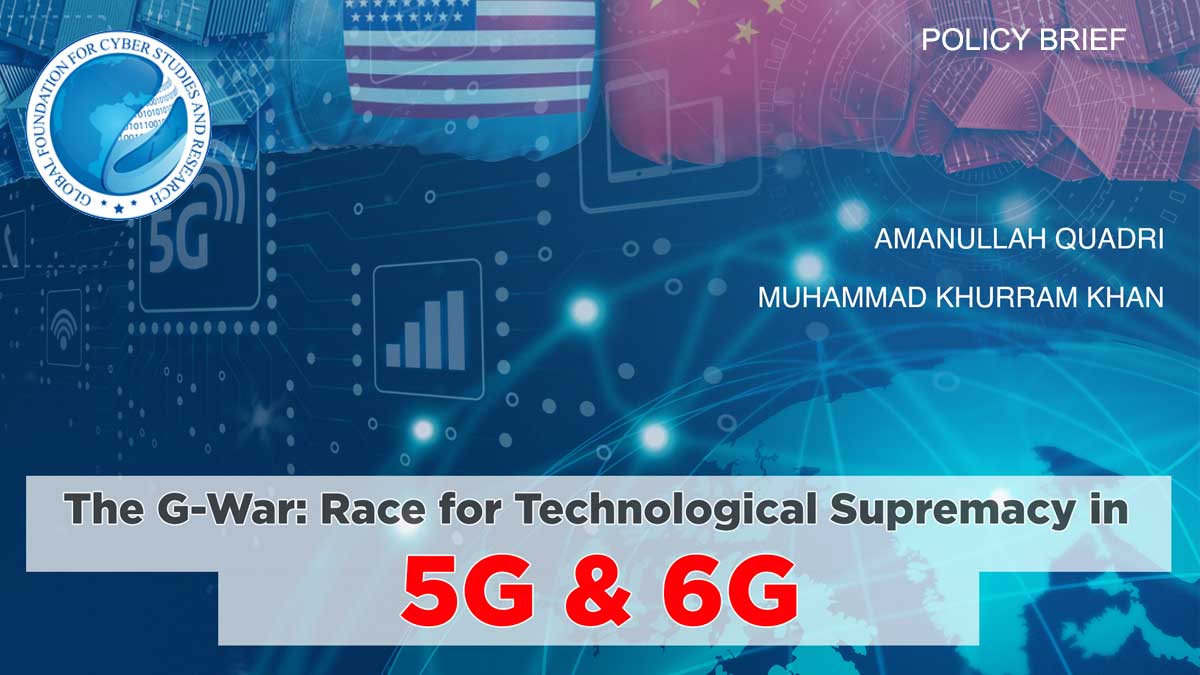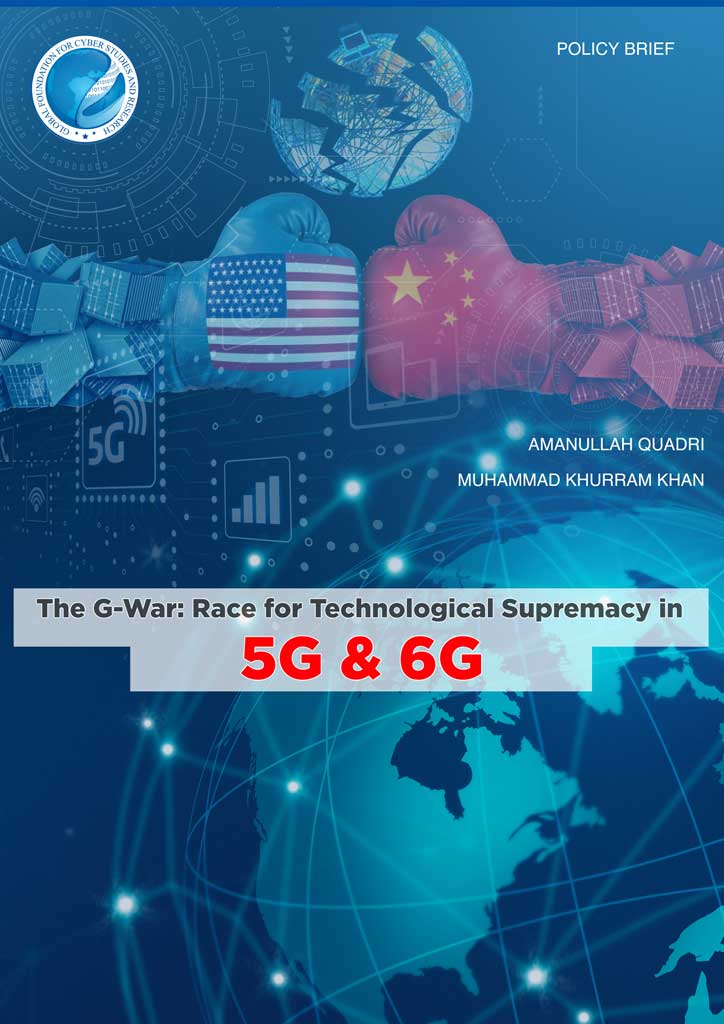The G-War: Race for Technological Supremacy in 5G and 6G

By Amanullah Quadri and Muhammad Khurram Khan

The world is witnessing the induction of revolutionary technologies at an unprecedented speed, altering and broadening the notions of technological development. The nation-states, both developing and the developed, are striving to establish their supremacy at technical domains such as Internet of things (IoT), artificial intelligence, blockchain, cryptocurrency, and like thereof. One such turf of extreme competition and inter-nation standoff is the 5th Generation (5G) wireless technology, where China apparently seems to have the competitive edge. However, the USA based on historical differences and the incessant trade war with China is setting the tone of unacceptance of the 5G technology through executive orders and political lobbyism and thus fostering a situation of G-War, a stand-off between China and the USA to control and dominate the usage and regulation of 5G and potential 6G technologies.
5G offers higher transmission speeds, lower latency, and supports a seamless control over internet-connected devices from cellphones to self-driving vehicles, through virtualization of hardware networking resources (Network slicing) and software-defined networking (SDN). This contest of nation-states to command the plethora of technology raises concerns globally. In this policy brief, we attempt to highlight the significant concerns arising due to the techno-political war and also outline some recommendations to address them.

About the author(s)
Amanullah Quadri
Amanullah Quadri is a policy researcher with GFCyber and a cybersecurity consultant with 8 years of experience.

Muhammad Khurram Khan
Muhammad Khurram Khan is the Founder and CEO of the Global Foundation for Cyber Studies and Research. His research focuses on Cybersecurity from the policy, technology and academic perspectives. His detailed profile can be visited on his personal website at http://www.professorkhurram.com
